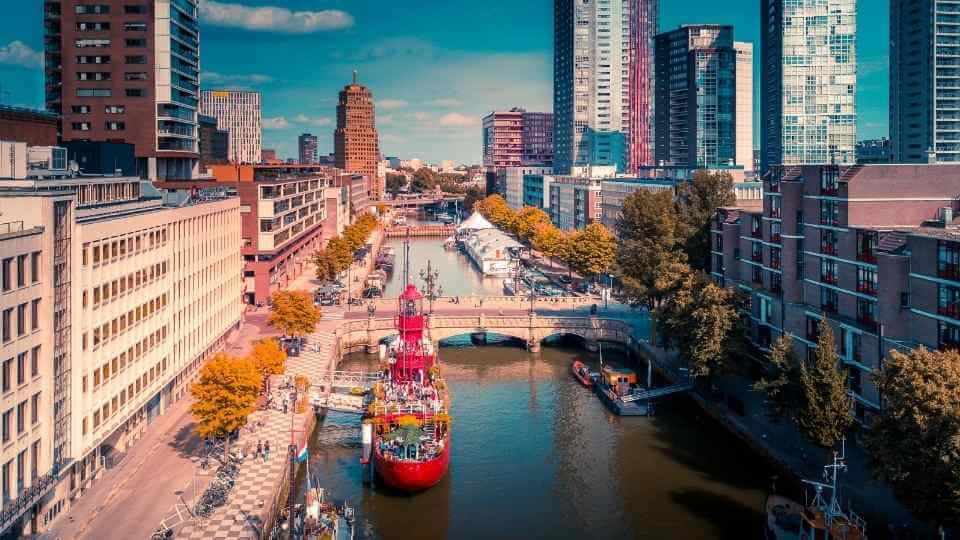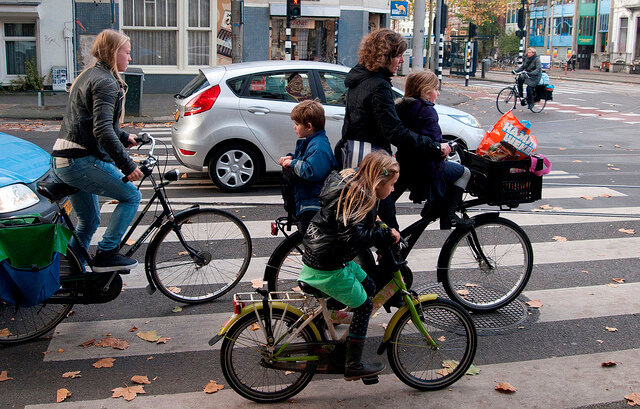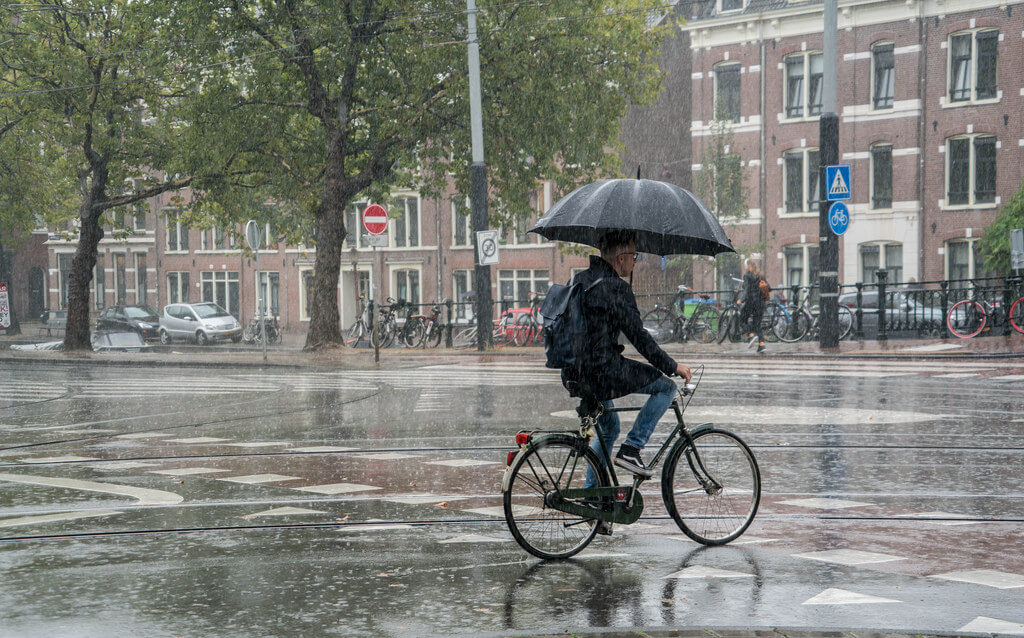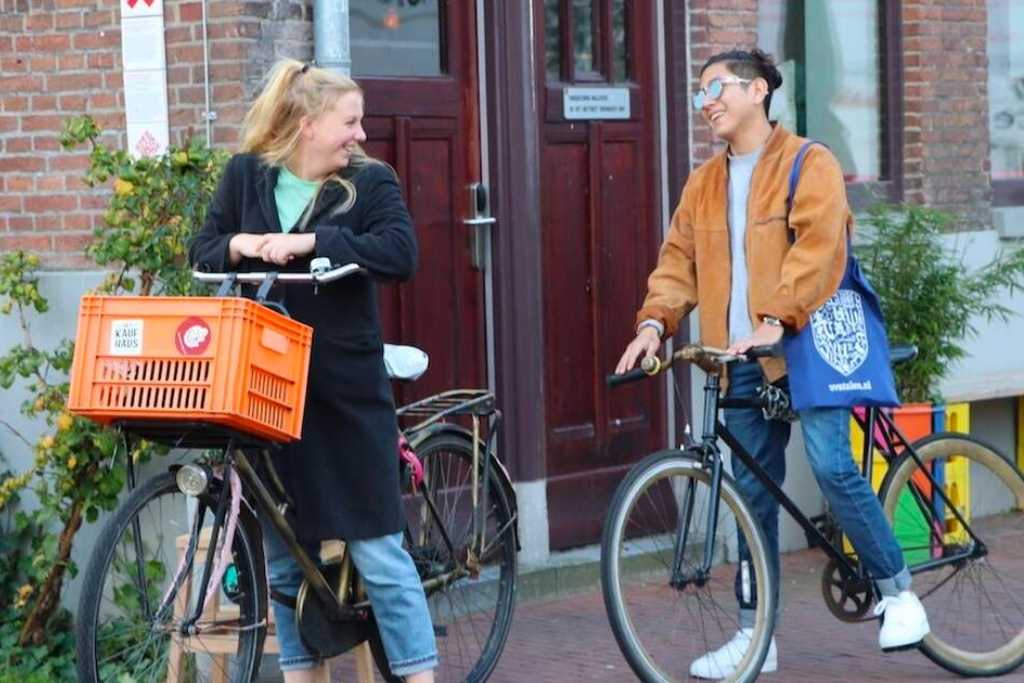A record number of foreign students and young professionals move to the Nederlands every year, making it one of the best countries to live in for expats.
There are many crucial factors to take into consideration when deciding whether to live in the Netherlands for your international exchange. You’ll need to consider your financial situation and whether you want to live alone or with a roommate when looking for housing.
The most crucial considerations, however, may be whether you’ll enjoy spending a semester or even an entire academic year in the Netherlands and whether it will be a good place for employment or an internship. When you relocate to the Netherlands, having a better understanding of the Dutch people and their way of life will help you have a more complete picture of what to expect from Dutch culture. Here are 10 justifications for why expats and foreign students should choose to live and study in the Nederlands!
The Dutch candor is very much appreciated.

A little directness can actually go a long way when adjusting to a new city. The Dutch believe in speaking your mind and following through on your promises. Don’t mistake this, though, for being impolite. The Dutch are very hospitable, straightforward, and sincere.
When working on a project or seeking advice or an opinion, this directness can easily be put to use. Even if you might be tempted to sugarcoat the information, a Dutch person will not hesitate to give you the straight answer.
Being so direct can also help you organize better and know where you stand at all times because it will save you a lot of time. This is the reason why living in the Netherlands is the best!
The Dutch are warm and welcoming.

Friendly people are one of the best things to encounter in an unfamiliar setting. Fortunately, Dutch people are friendly, approachable, and quick to converse with you when they pass you on the street.
The majority of students have no trouble making friends with their neighbors. Even if you’re rushing out the door, running late for class or for that crucial meeting with your new boss, always remember to at least wave or smile. This is the reason why living in the Netherlands is the awesome!
Everywhere in the Netherlands, English is widely spoken.

The majority of people in the Netherlands appear to speak English. You can hear it on the bus, in the grocery store, and in the streets. You will undoubtedly hear it spoken in university settings and even at work. When you are trying to converse with someone who is speaking Dutch and they sense that you are having trouble, they almost always seamlessly switch to English.
But don’t use this as an excuse to put off learning Dutch. Because it is thought to be somewhat similar to English, learning it is simple. There are frequently classes in Dutch offered at universities, or there may even be community classes available.
Before moving, it might be beneficial to learn a few fundamental Dutch phrases. Additionally, the locals will appreciate even your smallest efforts, and learning the language will make you feel less like a visitor and more at home.
The infrastructure and organization in the Netherlands are good.

Any type of environment benefits greatly from organization, but living in a nation with a well-balanced and well-thought-out infrastructure is especially straightforward and enjoyable.
A number of laws have been put in place to ensure that everyone and everything is compliant. For instance, there are a lot of rigid waste regulations. If trash is not disposed of at the designated location and time, especially if it is in the street or too close to it, the resident may be fined.
The well-organized Dutch public transportation system provides quick, dependable ways to travel from one end of the city to the other. The OV-chipkaart is accepted as payment across all modes of transportation. You can easily load credits onto the card at vending machines located in the metro stations and other places around the city. If you don’t remember to scan the card at the beginning and end of the trip, you risk receiving a fine. You can save 40% on train travel by using the card.
It’s also important to mention the Dutch postal system. The service is very quick in PostNL, a privatized mail system. Post will be the only means of communication with the municipality. Plus, there are far fewer restrictions than with some other postal systems when it comes to accepting or signing for packages. Expats in Nederlands loves it!
The Dutch practically have a cycling tradition.

Cycling is undoubtedly common throughout Europe, but it is especially prevalent in the Netherlands where it is an integral part of daily life. In fact, you’ll even see locals cycling in the rain, some pulling children or a seat on the back. Due to the fact that cycling 20 miles roundtrip is quite common, Dutch people don’t always use bicycles to travel short distances.
Of course, the bicycle is the most convenient, affordable, and healthy mode of transportation for almost all students. Many people who move to the Netherlands do so as soon as they can buy a used bike. Bike sharing programs, on the other hand, enable users to rent a bike and then return it to any of the many stations located throughout the city.
It’s also not at all odd to see a professional riding a bicycle to work while wearing a shirt and tie. It’s a great form of exercise, and depending on the day and any events that may be going on, parking a car in the commercial districts can be expensive and even challenging.
The Nederlands has one of the best work-life balances in the world for locals and expats

The Netherlands appears to excel in a number of areas compared to most other nations, and their work hours are also commendable. The Dutch tend to work fewer hours than the average person in Europe, placing a lot more value on spending time with family or engaging in leisure activities.
According to statistics, 26% of men and 75% of women work a part-time schedule of 35 hours per week, with some even working one or two days from home. In order to offset this, the average pay is a little higher, which also raises the standard of living.
Dutch workers also enjoy getting up early and going home early. They would much rather complete their daily responsibilities earlier so that they can spend the entire evening with friends and family. Additionally, it’s uncommon to see a Dutch professional arriving late for work.
Additionally, employees get more time off, with 20 vacation days on average annually. Perhaps for this reason, the Netherlands is ranked among the ten happiest nations in the world.
You’ll come to appreciate Dutch weather

The weather in the Netherlands can be utterly unpredictable, as you may already be aware. Before morning classes, you might be sprinting to the university through a thunderstorm, and by a very humid mid-afternoon, you might be enjoying a nice lunch on a sunny terrace discussing your internship. Because conditions can literally change in the blink of an eye, it is a good idea to always have an umbrella or raincoat on hand. Many locals use weather apps to give them an idea of what to expect from the day, but they are occasionally just as unreliable as the weather. Enjoying the weather is a good reason to live in the Nederlands for expats.
The Netherlands’ pleasant climate is that its residents typically experience all four seasons. This entails enjoying the tulips in the spring, boating along the canals during the long summer days, and ice skating on frozen lakes. It also includes taking in the fall foliage’s vibrant colors.
The best months for weather are typically May through September, when there is a higher likelihood of seeing the sun. Generally speaking, the weather is warm and humid, and everything appears to be in full bloom. It’s a great time to explore some of the nation’s stunning natural areas, like hiking through Utrechtse Heuvelrug National Park, unwinding at Zandvoort’s beach, or taking in Oudegracht Canal in Utrecht. This is the reason why living in the Netherlands is the best!
Traveling throughout Europe is simple from the Netherlands

The Netherlands isn’t thought to be a very large country, so getting from one city to the next is simple. This gives you the chance to check out the music festivals in Groningen, brewery tours in Enschede, and film festivals in Rotterdam.
The Netherlands’ location is fantastic because it is close to so many other fascinating European cities. The Netherlands is conveniently close to both Luxembourg and France, and it is sandwiched between Germany and Belgium. If made at the right time, a trip from Amsterdam to Berlin, for example, can be purchased for as little as €8 to €39! There aren’t many things that can compare to a fantastic road trip, but there are plenty of train routes that can take you to experience a completely different culture in a short amount of time and at a reasonable cost. Additionally, if you didn’t bring your car with you to the Netherlands, it’s the ideal way to travel through Europe. This is one of the most important reason why expats love Nederlands.
Living in a place so close to numerous capital cities and exciting activities is just another reason to appreciate the Dutch way of life, as adventure is a big part of studying or working abroad. It’s the ideal time to see as much of Europe as you can because rail passes are affordable for youth and students.
The Nederlands is renowned for its tolerance and safety for expats

The situation can definitely become a little overwhelming when you’re in a new city. Though it can help to put your mind at ease to know that you are in a welcoming, secure environment.
One of the lowest in the world, the crime rate in the Netherlands is extremely low. Numerous theories have been put forth as to why this is the case, including references to the nation’s d.r.u.g. policies, lower rates of poverty, and the system’s customary preference for rehabilitation over incarceration.
Since the average Dutch person takes laws very seriously, following local ordinances is usually required. Most citizens actually abide by the rules because they understand how beneficial they are to everyone as a whole. As a result, things continue to run smoothly. This is the reason why living in the Netherlands is the best!
Interesting questions about life in the Nederlands for expats
Netherlands salaries and taxes
Even though they skew lower than in the UK or US, wages generally fall within the global industry average range. The average salary is roughly €36,500 per year, or €2,816 per month, but it can vary depending on the industry, experience, skills, and qualifications. The Netherlands’ over-21-year-old minimum wage was set at €1,701 per month (or €9.82 to €10.91 per hour, depending on your workweek) as of July 2021. Another common employment option is freelancing. A zelfstandige zonder personeel, also known as a zzp’er, is an independent worker without staff, and there are about 1.1 million of them in the United States.
In the Netherlands, is it simple to find love?
Like everything else in their lives, the Dutch manage their romantic relationships in a direct and assertive manner. Whether they are meeting someone in a bar or on a Dutch dating site, women are equally likely to approach someone they find interesting. Neither sex is fond of overt flirtation or displays of affection. They prefer to keep things simple and concentrate only on the emotional side of a relationship. As with everything else, assertiveness is rated. This is the reason why living in the Netherlands is awesome!
The fact that Queen Maxima is from Argentina and every previous consort was a German shows that Dutch people are open to dating foreigners. Nowadays, a lot of millennials and younger Dutch people would rather live together or register their relationship than ever get married.
The Netherlands has long been a draw for those looking for alternatives to the heterosexual lifestyle and a vibrant gay scene due to its status as the first nation in the world to legalize same-sex marriage (2001) and one of the earliest to legalize homosexuality (1811).
Why The Netherlands is the Best Country to Study and Live In?
7 Reasons Why The Netherlands Is A Perfect Place To Live
10 tourist gems in the Netherlands that prove it’s Europe’s most valuable country
